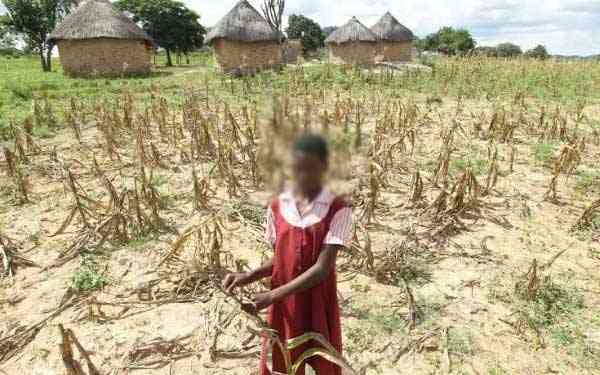
An estimated 58 million people in southern Africa are faced with food insecurity owing to the climate crisis, which is threatening the subsistence of the region’s underprivileged populations, an international charity organisation has revealed.
According to Oxfam, which is aimed at alleviating poverty globally, extreme weather patterns are already significantly hampering agricultural production, and are "likely to get much worse" affecting more within the region’s estimated population of over 345 million people.
"Climate destruction is undermining food security and driving a food crisis that is hitting the poorest people and countries the hardest. An estimated 58 million people in southern Africa are facing food insecurity," said the organisation in a statement.
“For approximately 500 million smallholder farmers worldwide – many of them women – who rely on agriculture as their main source of food and income, the impact will be nothing short of catastrophic.”
Oxfam recently released a report titled ‘Climate Equality: A planet for the 99%’ which captures the connection between climate change, poverty and inequalities in society.
The humanitarian organisation noted that the top 1% of the population in different Southern African Development Community (SADC) nations –mostly men– earn more than 14% of the national income of their countries.
“The five wealthiest men in SADC – three in South Africa and one each in Tanzania and Zimbabwe – saw their wealth expand from $13.5bn in March 2020 to $16.7bn by September 2021,” said Oxfam, adding that these economic imbalances were affecting vulnerable groups like women across the spectrum.
“Now, more than ever before, it is clear that we cannot build a planet free of poverty, violence, and oppression without collective action against all Gender Based Violence, rising inequality, and the climate crisis that is fuelling it.”
- We were sad to see ED in Rwanda: Ndiweni
- Coal rush! Energy crisis fires global hunt for polluting fuel
- Tanzania's president urges women to have fewer babies
- Artistes sing against sanctions
Keep Reading
Meanwhile, the organisation is set to deploy representatives to COP28 climate negotiations set for Dubai, United Arab Emirates, on Wednesday in a bid to amplify the voices of women, who are mostly affected by the crisis.
“As we commemorate the 16 Days of Activism Against Gender-Based Violence from the 25th of November, which will continue throughout the deliberations at COP28 commencing on the 30th, our thoughts, campaigns and actions around GBV should reflect the interconnectedness for the struggle for gender equality, the struggle to eradicate gender based violence, and the struggle for climate equality,” said Oxfam.










